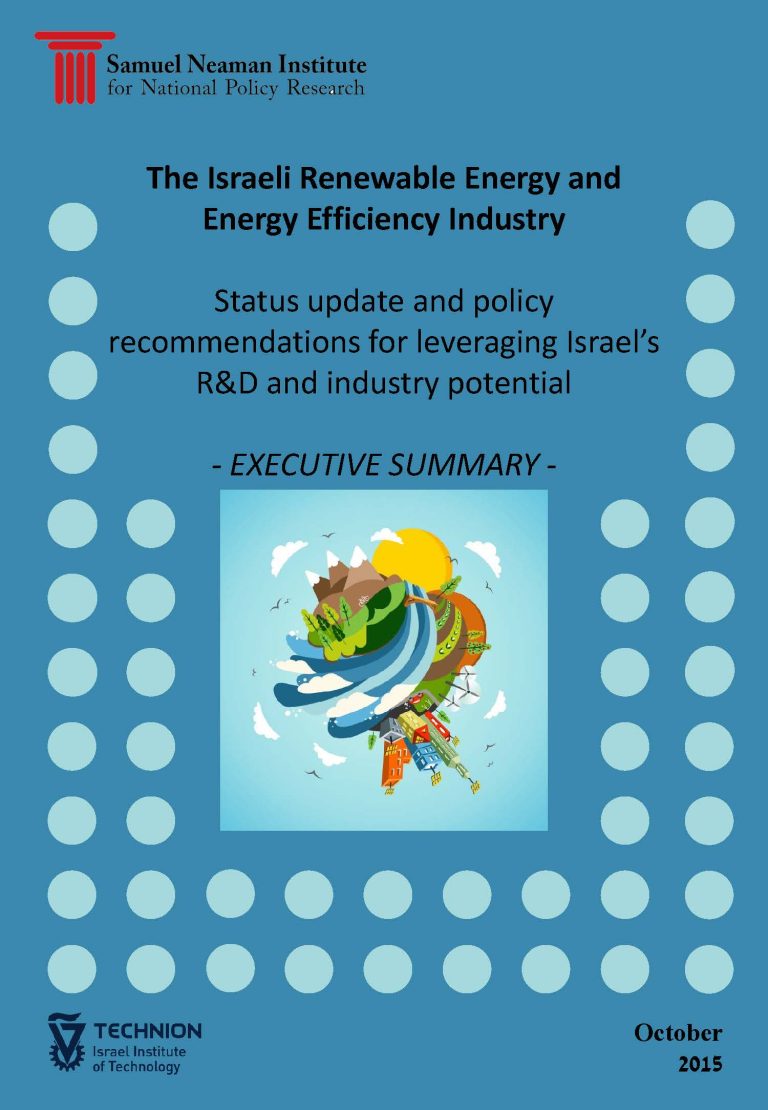This paper is aimed to evaluate the potential of the Israeli renewable energies and energy efficiency industry, and lay out policy recommendations for effective commercialization.
The renewable energy market worldwide is continuously growing – including both installation and development of innovative technologies. As the share of renewable energy in the grid increases, the need for network integration solutions becomes clearer, with an emphasis on a smart network and on energy storage.
The main increase in renewable energy installation is in developing countries, which have become a leading business target for the Israel renewable energy industry.
In Israel there is a window of opportunities for exceptionally innovative developments and applications in the field of generating renewable energy, due to a synergy that exists between the security industry, the hi-tech industry, and the innovative “startup nation”.
Israel’s relative advantages must be leveraged – especially as the renewable energy industry is abundant in manpower and knowledge. Developing this industry could therefore lead to direct and significant benefits for the Israeli market as a whole, including increased employment and export, and benefits such as emissions decrease and energy saving.
However, the renewable energy industry presents unique challenges – especially with regards to financing following the transition from R&D to commercialization of the technology.
Israel was recently ranked no. 1 for cleantech innovation out of 40 entrepreneur states, including Finland and the USA. However, there was a significant gap between Israel’s innovative abilities and its ability to commercialize these technologies (only ranked at no. 8).
Main recommendation – A joint government, public and private venture capital.












